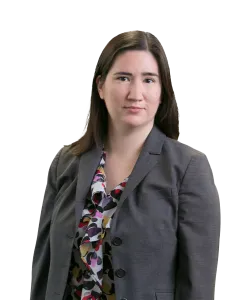
eDiscovery & Litigation Readiness
ArentFox Schiff’s eDiscovery attorneys understand how to integrate eDiscovery with a multi-dimensional litigation strategy.
eDiscovery is about delivering a reliable assessment of the strengths and weaknesses for both sides’ evidence, executing a credible and defensible collection and production, recognizing and exploiting when opposing counsel falls short in meeting discovery obligations, and performing on time and on budget. In other words, our eDiscovery team works to neutralize our clients’ risk and maximize our adversaries’ exposure. A winning eDiscovery strategy guides the path to a successful litigation outcome by eliminating the surprises that can derail a case strategy or case budget. We know eDiscovery surprises take many forms.
- The “smoking gun” email that surfaces for the first time during a key deposition.
- The court order compelling additional searches or awarding discovery sanctions.
- The discovery budget that triples because of unexpected data volumes.
- The expert witness who misses a deadline because data was not requested in a machine-readable format.
- The adversary who leverages discovery errors for a windfall settlement.
While certain surprises are inevitable in litigation, we aim to minimize them. Our team includes:
- Trial lawyers who understand how to integrate discovery and trial strategies and have tried and won complex evidence spoliation disputes in state and federal courts around the country.
- Attorneys adept at combining TAR and sophisticated AI search strategies with traditional custodian interviews for effective early case assessment, budgeting, and negotiating eDiscovery protocols.
- Attorneys and in-house eDiscovery professionals who know how to pair AI-driven solutions with in-house and vendor review teams to maximize efficiency and quality.
- Attorneys who are active as teachers and respected thought leaders shaping eDiscovery law and policy.
- In-house eDiscovery professionals trained as project managers who use the firm’s proprietary tools for building and tracking eDiscovery case budgets.
Skilled eDiscovery Technical Advisors
Our eDiscovery attorneys are complemented by an in-house team of experienced litigation technology professionals. We save our clients money by hosting and reviewing electronic data on sophisticated review platforms in house, but we know there are no one-size-fits-all solutions, and maintain the independence to help our clients identify the best technology solution for each case. We have worked with clients who have experienced in-house litigation support departments and clients who don’t, and we scale our services to match the needs of each client and each case.
Managing Electronic Records for Litigation Readiness
Drawing on our litigation experience, we assist clients with litigation readiness efforts so that when litigation occurs, the client has its data organized for efficient, economical, and defensible preservation and collection. We draft record retention and information governance policies; investigate our clients’ systems and create data maps; craft litigation hold procedures and policies; consult on collection protocols; and train our clients’ employees on implementing these procedures.
Experience
Proving and defeating claims of electronic evidence spoliation, and bringing and defending sanctions motions for alleged destruction of electronic evidence
- As “rescue” lead trial counsel for defendants, engaged just one month before a jury trial, we won on rehearing an order excluding evidence of our clients’ deletion of electronic evidence from both testifying witnesses’ smartphones and the corporate email server.
- As lead trial counsel for plaintiff, we won a contempt motion by proving in a bench trial through circumstantial evidence that defendant had copied and retained competitive information in violation of a TRO. The parties reached a settlement following the court’s decision holding defendant in contempt.
- As lead trial counsel for plaintiff, we brought a motion for case-dispositive sanctions presenting evidence that co-defendants had used an encrypted chat application to communicate, and then withheld from discovery and attempted to destroy those chats. Following a hearing in which the federal district court excoriated for discovery misconduct defendants’ counsel from a top 50 Global firm, the parties reached a settlement of all claims.
- As lead trial counsel for plaintiff, we brought a motion for case-dispositive sanctions presenting evidence of destruction and concealment of electronic evidence and false testimony by defendants in an attempt to conceal their copying, retention, and use of plaintiff’s electronic data. Following a week-long bench trial on our client’s sanctions motion for default judgment via Zoom during the COVID pandemic, the parties reached a settlement.
- As creditor’s counsel in a bankruptcy case, we won a bad faith finding and dismissal of debtor’s bankruptcy petition based in part on evidence that debtor had destroyed and withheld electronic evidence.
- As lead trial counsel for plaintiff, we won a default judgment as a sanction for the opposing party’s intentional alteration and destruction of file access history metadata. The decision is widely cited as a landmark early decision pre-dating the eDiscovery amendments to the Federal Rules recognizing the importance of metadata and awarding dispositive sanctions for eDiscovery violations. Krumwiede v. Brighton Associates, L.L.C., 2006 WL 1308629 (N.D. Ill. 2006)
Successfully handling complex eDiscovery scope and protocol disputes in the courtroom
- As lead trial counsel in litigation arising from a partially completed software implementation, we successfully briefed and argued complex disputes over the scope and format of data exports, access to native data interfaces, and inspection of the implementation development and production environments. The disputes included a “science day” hearing before the court, transcribed conferences between the parties’ counsel and experts submitted to the court, and submission of competing detailed technical protocols. The parties reached a settlement shortly after the court allowed our client’s experts access to inspect, on premises, the opposing party’s live production environment.
- As lead trial counsel in a civil contempt proceeding against a Malaysian company and its principals, after proving substantial gaps in their production, we won an order compelling respondents to engage, at their own expense, an independent eDiscovery vendor to conduct a broad expedited collection, review, and production of both company and personal accounts and devices under a court-ordered protocol and export of that data to the United States. Within days of the court’s discovery order, parties reached favorable settlement of multiple pending lawsuits in both the United States and Singapore.
Effective eDiscovery planning and execution
- As lead counsel in multiple class actions for a major trade association with more than one million members, we managed all eDiscovery issues without any material discovery dispute ever reaching the court, including custodian interviews, document collection, responsiveness, and privilege review, and document production.
- As counsel for a multinational energy company responding to a subpoena raising substantial privilege and confidentiality issues, we used TAR to materially reduce the scope of documents requiring linear review and successfully negotiated opposing counsel’s consent to the collection and review protocol, completing review at less than 10 percent of the cost of what had been originally budgeted for a traditional review.
- Taking over as eDiscovery counsel, we leveraged the firm’s in-house processing and hosting resources to reduce our client’s eDiscovery budget by approximately 50 percent compared to prior counsel.
- As eDiscovery counsel, we provide ongoing representation for a major nonprofit association in class action antitrust and MDL cases, including management of custodian interviews, document collection, responsiveness and privilege review, and document production, utilizing TAR and project management to reduce cost and increase efficiency and reliability.
- As counsel for a large electric utility defending class action lawsuits related to a power plant, we assisted our client in developing and executing a strategy for analyzing 3.4 terabytes of emails and other ESI, establishing positions to take in negotiating eDiscovery protocol, and preparing for the defense of those positions in anticipation of challenges by the plaintiffs. The strategy included working with a vendor and use of sampling, use of TAR, and contract attorney review.
- As counsel for a renewable energy company, we utilized analytics tools and email threading to cull multiple terabytes of emails and other ESI and managed review for the development of a complaint for possible litigation with a supplier.
Credentials
Teaching
- Faculty, The Sedona Conference eDiscovery Institute (2019)
- Adjunct Professor, Chicago-Kent College of Law, teaching courses on Complex Pretrial Civil Litigation and Data Privacy Law (2008-2016)
Professional Certifications
- Certified Information Privacy Professional (CIPP-US)
The CIPP-US certification is the leading ANSI/ISO accredited standard for information professionals in the United States.
Speeches and Publications
The Sedona Conference has been at the forefront of eDiscovery law and policy for more than 20 years. Our attorneys actively participate in and contribute to Sedona Conference thought leadership and continuing education.
- Teaching Faculty, The Sedona Conference Institute (2019)
- Drafting Committee, Sedona Conference Commentary on Bring Your Own Device (BYOD): Security, Privacy, and Discovery (2018)
- Drafting Committee, Sedona Conference Data Privacy Law Primer (2018)
- “Data Breach Case Law Update,” Sedona Conference Working Group 11 on Data Security and Privacy Liability Annual Meeting (Dec. 1, 2015)
- “Discovery of ESI Involving ‘Bring Your Own Devices’,” Sedona Conference Working Group 1: Electronic Documents Retention and Production Annual Meeting (Oct. 29, 2015)
- “BYOD: Preservation and Discovery from Mobile Devices,” Sedona Conference Working Group 1 Midyear Meeting (Apr. 29, 2015)
Other Speeches and Publications
- “Jurisdiction in the Information Age,” Chapter 16 in Intellectual Property Law, IICLE (2017) (revised edition forthcoming 2021)
- “Current Trends in Data Breach Litigation,” American Bar Association Webinar (Feb. 8, 2012)
Key Contacts
- Related Practices
- Related Industries

